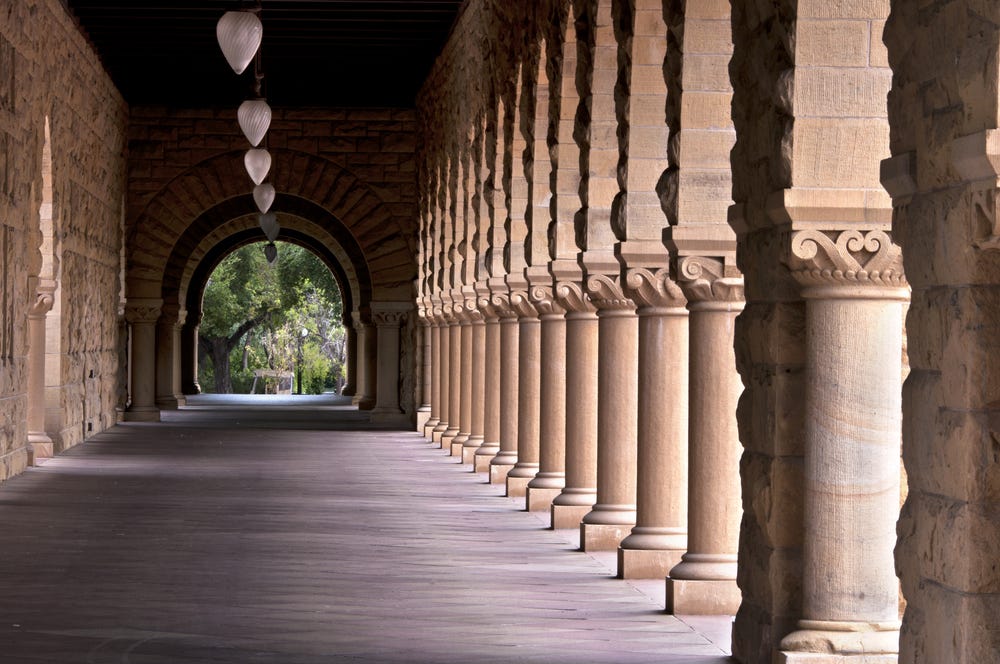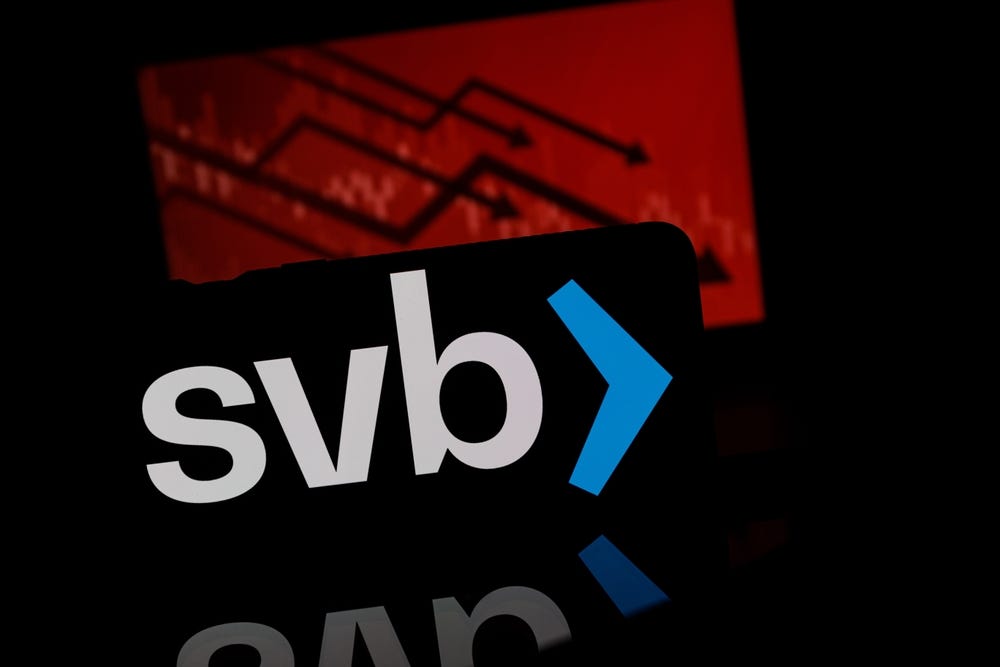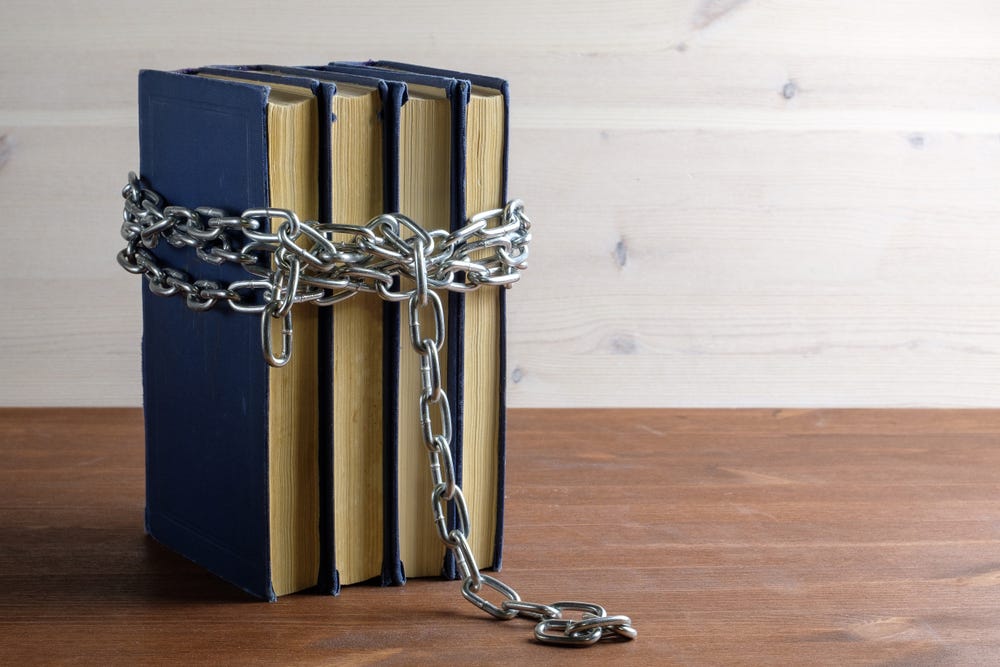E-Pluribus | March 15, 2023
Shouting down speakers is not free speech; did DEI kill SVB?; and why the First Amendment case for/against school book bans and social media censorship isn't always clear.
A round-up of the latest and best writing and musings on the rise of illiberalism in the public discourse:
Jessie Appleby: Stanford Law Hecklers Demanding ‘Free Speech’ Don’t Know What They’re Asking For
For the last several days in our Around Twitter section, we’ve covered the situation at Stanford Law where an invited speaker, a federal judge, was shouted down by protestors claiming his views were “harmful.” Another protest occurred after the law school dean apologized to the speaker where the students argued that “counter-speech is free speech.” Jessie Appleby at the Foundation for Individual Rights and Expression (FIRE) has a new post explaining why the student protestors are not the free speech champions they claim to be.
Unlike the disruption of Duncan’s speech last Thursday, there is no evidence Monday’s protest of Dean Martinez was disruptive. Yet students protesting on Monday also demonstrated a profound misunderstanding of free speech and the First Amendment in their claims that silencing an invited speaker is within students’ free speech rights and that their dean was wrong to apologize for the event’s disruption.
FIRE routinely defends the free expression rights of both invited speakers to speak and student protestors to protest a speaker. FIRE also defends students’ right to ask pointed questions or make rude or uncivil comments during a Q&A session. But students’ right of protest does not include the right to disrupt an event to the point that it is unable to proceed as planned. Counter-speech can’t happen if the speaker is censored.
It’s clear that Stanford’s promises to enforce their non-disruption policies won’t be enough to ensure a thriving culture for discussion and debate on campus. Students have to know what free speech means, and that it is a force for good. The elite students of Stanford Law must come to learn that free expression is the most powerful tool for social change ever devised — one they could quite capably use to their advantage. But that won’t happen if they keep begging administrators to protect free speech rights only for them.
Read it all.
Alec Dent: SVB, DEI, and ESG
Conservative media and politicians, including Florida Governor Ron Desantis, have claimed that Silicon Valley Bank’s prioritization of DEI (Diversity, Equity, and Inclusion) and ESG (Environment, Social, and Governance) initiatives led to its demise. While it may be tempting to blame all of society’s ills on “wokeness,” The Dispatch’s Alec Dent shows that this argument is a little far fetched.
There is no doubt that SVB prioritized DEI and ESG principles, but did that lead to the bank’s collapse?
[ . . . ]
Silicon Valley Bank was the 16th largest bank in the country at the end of 2022 in terms of assets.
Every bank larger than it has incorporated DEI into its business model and established a chief diversity officer or similar position or council. (JP Morgan Chase, Bank of America, Citi, Wells Fargo, US Bank, PNC Bank, Truist, Goldman Sachs, Capital One, TD Bank, Bank of New York Mellon, State Street, Citizens Bank, First Republic Bank, and Morgan Stanley.)
One thing that did differentiate SVB from other major banks? Its investments as a percentage of total assets. The average U.S. bank has 24 percent of its assets in investments. SVB had 57 percent. That meant a serious lack of liquidity, and its selloff of bonds to increase cash on hand cost it $1.8 billion.
Read the full post.
Eugene Volokh: "Book Bans," "Social Media Censorship," and Our Tongues
Champions of the First Amendment are obviously opposed to governments banning books from being sold or punishing online speech. But when it comes to books being removed from school libraries or Twitter posts being removed, it becomes somewhat more complicated, especially on legal grounds. At The Volokh Conspiracy, Eugene Volokh explores why school book bans and social media censorship don’t always fit neatly in free speech buckets.
One also often hears social media platforms' decisions to block certain posts, or remove certain accounts, labeled "censorship." Some object: Such actions don't actually use the law to punish speech, or even make such speech unavailable. It's just that the platform has decided not to make the book available to its users as something that the platform endorses as worth hosting. (Note that this argument can be independent of whether the platforms' actions violate the First Amendment; they likely don't, at least absent government coercion, since they aren't state action, but independently of the legal question one might argue that such actions should still be condemned.)
[ . . . ]
I take it that the people who complain about school library book bans and social media censorship take a similar view. The use of a library (including a school library) is almost as much a part of free speech as the right to use our tongues, or at least as the right to buy those books that someone is willing to sell us. The use of Facebook or Twitter is almost as much a part of free speech as the right to use our tongues, or at least as the right to send letters to people or to publish and mail a newsletter (if you had the money to do it).
[ . . . ]
Conversely, others may disagree. The use of a school library, they might argue, has always allowed you just to see those books that the school chooses to recommend for you, as part of its discharge of its educational mission (as the librarian, principal, school board, or state legislature understands that mission to be). The use of private social media networks, they might argue, is more like the ability to get your letters to the editor published in a newspaper, something that none of us has had a right to do (whether a legal right or a de facto practical ability). It's largely a question of the social significance of the entity.
Read more.
Around Twitter
Kevin Wallsten, Professor of Political Science at California State University, Long Beach, finds a correlation between DEI bureaucracy and free speech on college campuses:
Robert Tracinski on the problem with the overuse of “woke” today:
Should the Cybersecurity and Infrastructure Security Agency (under DHS) be able to determine what constitutes misinformation?









